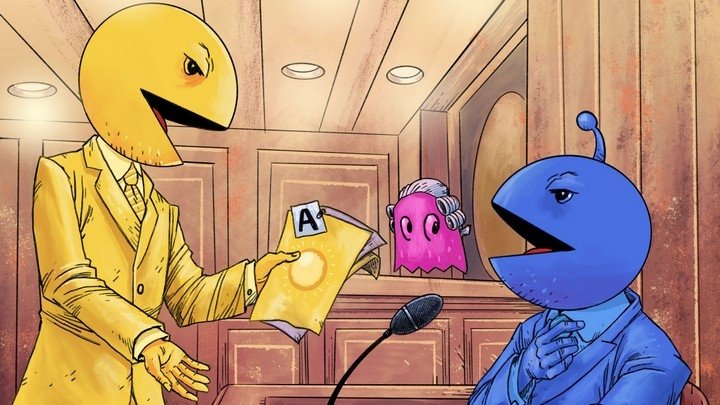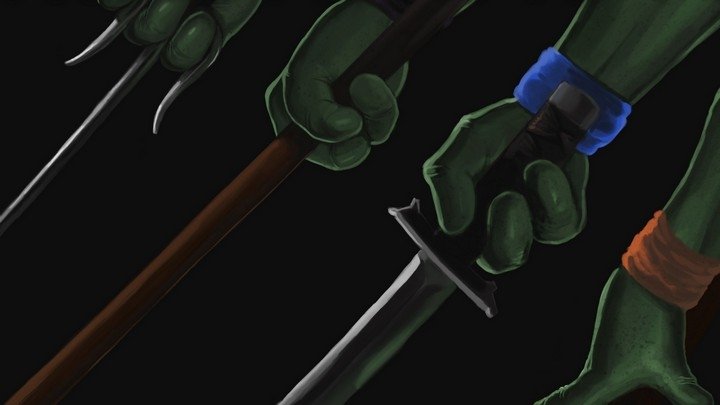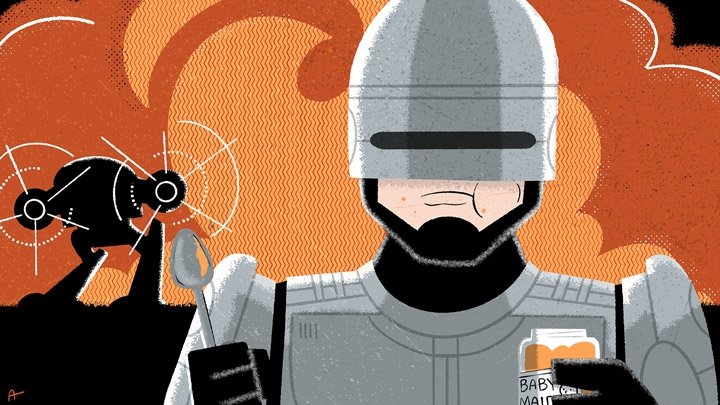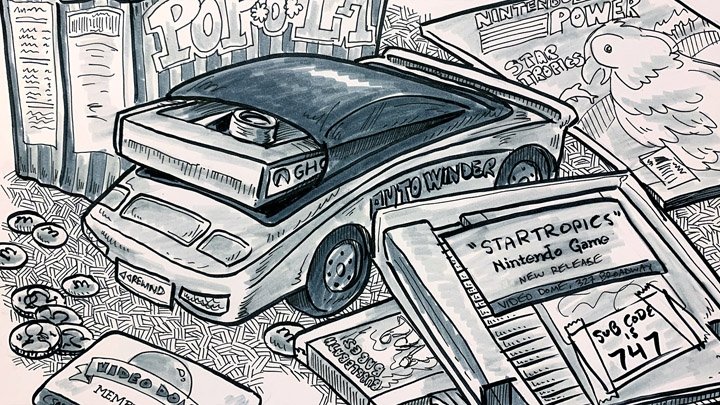How fans spun Windjammers from ignored to adored
This game's swaying fortunes show public opinion is as powerful as it is unpredictable.
Nearly nine months since its announcement at PlayStation Experience last December, Data East's Windjammers was finally released on Wednesday for PS4 and Vita (as noted in yesterday's Retro Release Round-up). Data East went bankrupt back in 2003, so this release comes courtesy of the current rights holder, Paon DP, with DotEmu doing the legwork. But why even go to the trouble of dredging up this little-known arcade one-off from a defunct developer? Windjammers failed to make waves in its own day, earning neither a home port nor a follow-up of any kind. But this release isn't coming out of nowhere; on the contrary, it's the culmination of a cult following the game has gradually built up over the better part of a decade.
If you don't know, Windjammers is a head-to-head game of Frisbee—though it plays out more like air hockey, as the disc rebounds off the walls of the court and you score points by sneaking it past your opponent. For the same reasons, it's often likened to Pong, but Windjammers has much more going on than Atari's formative relic. Players choose from six different characters with varying stats and a unique power throw. Your general move set includes sending an arcing shot sailing over your opponent's head, feinting with a slow-moving lob, and curving your shots by tilting the stick in a circular motion. You can also slide to intercept the Frisbee, which is risky due to the recovery time but can save your life if applied carefully. Matches also take place across six court layouts, differing by length and gimmicks such as midcourt bumpers that require you to shake up your tactics.
While Windjammers gives you plenty to think about, your mind has to be made up in an instant, as the disc ricochets around the screen with lightning speed and the tide of a match can turn in the blink of an eye. This in turn informs one of the game's greatest strengths, which is that it's as exciting to watch as it is to play. There's no greater tension than watching a match where both players manage to juggle the disc between themselves with neither side scoring; you can feel your heart rate jump with each consecutive volley until one of them mercifully lands and you can breathe again.
It doesn't hurt that Windjammers is also just wonderful to look at, bearing a bright '90s beach aesthetic with prominent pinks, purples, yellows, and greens. Little details, like the walls shaking when struck by the Frisbee or the goal cages reeling back with the force of a successful throw, also add a great deal of impact to the action. Your characters exhibit endearing animations like falling to their knees upon defeat or dancing laps around their half of the court when you win. In many ways, the game has the visceral appeal of a fighting game (the ruling class of the '90s arcade scene) minus the barriers to entry.
For years, Windjammers amounted to nothing more than a footnote in Data East's back catalogue. Maybe it was just too far outside the norm to garner much attention back in 1994. Fortunately—and quite unexpectedly—it gained a new lease on life roughly fifteen years after the fact, thanks to conventions like MAGFest where it was rediscovered by an audience who came to love it for what it was. From a distance, it might have seemed to coast on '90s kitsch and the absurdity of its premise (it's hard not to think you're being put on when you hear a crowd of bro gamers joyously roaring "WINDJAMMERS!"), but the game's persisting popularity since then should prove there's substance beneath the hot pink facade.

Since the core gameplay is easy to understand, playing is believing; hence the love has done nothing but spread. Fans have gone on to organize tournaments (as far back as 2011) and even form entire communities around the game (such as Windjammers France), sharing tutorials, strategies, and announcements. When the organizers of EVO 2017 put nine games to a bidding war for a vacant slot in their schedule, Windjammers came in fourth despite not even being a fighting game—not bad for a game that was once dead and buried.
Now Windjammers is out for everyone to play and enjoy, and with online multiplayer and the PS4's native streaming capabilities, it seems safe to say its grassroots following will continue to flourish. DotEmu definitely seems to hope so, as they keep invoking the spectre of "esports" in their press releases. But even if it works out for them, fans deserve much of the credit for hauling this unappreciated gem into the collective consciousness and providing a viable context for its official return to the light of day. The term "cult classic" tends to get applied to any offbeat game with dedicated fans, but Windjammers is the real thing.




